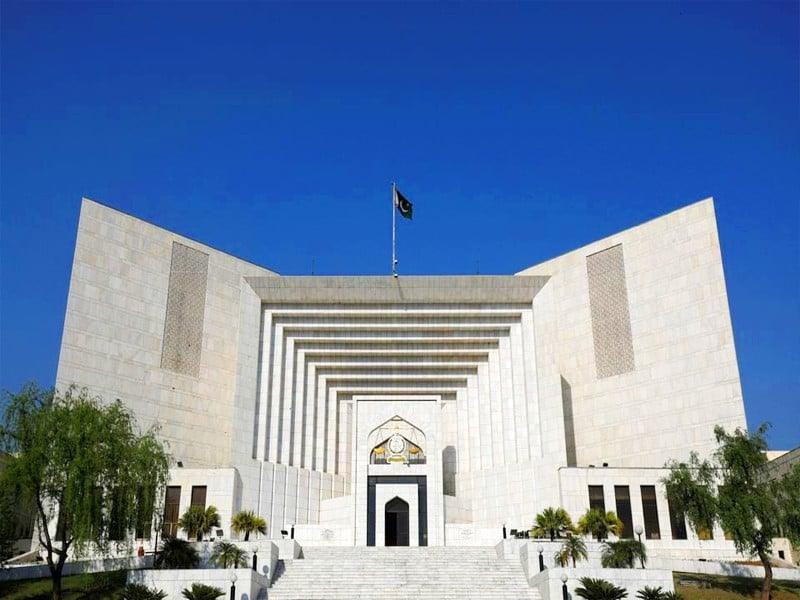Judge Hassan Azhar Rizvi has questioned whether there is any difference between those who commit terrorist acts, collaborate with common enemy spies.
Their comments arrived when he hooked with an LWYER during the hearing of an intra-couurt appeal regarding civil judgments in military courts.
He stressed that the lawyer should make a clear distinction in his arguments, said Express News.
The Supreme Court, under Judge Aminuddin Khan, is listening to the case with a constitutional bank of seven members.
Khawaja Ahmed Hussain, who represents Judge (R) Jawad S. Khawaja, began his arguments stating that civilians should never submit to a martial martial court, since military judicial procedures do not comply with the standards of a fair trial.
Khawaja argued that the five Judges of the Supreme Court had not agreed to transparent the trial process of the Military Court. Judge Hassan Azhar Rizvi replied asking if there is no difference between those who commit acts of terrorism, collaborate with common enemy spies. He insisted that the lawyer should make a clear distinction in his arguments.
Khawaja Ahmed Hussain clarified that he did not defend terrorists or criminals. In addition, he explained that if the martial court for civilians were possible, there would have been no need for the 21st amendment.
Judge Hassan Azhar Rizvi commented that certain crimes had been included in the Army Law through the 21st amendment.
Khawaja Hussain argued that if the amendment to the Army Law would have been enough to allow the Martial Court, there would have been no need for a constitutional amendment. If the martial court were possible, the court would have to rule that the 21st amendment was unnecessary. He also noted that article 175 had been amended at the 21st amendment, and there is no provision for the bond until the decision is made in the military courts.
Judge Hassan Azhar Rizvi commented that the military courts make rapid trials, noting that if a decision is made within 15 days, the issue of bond becomes irrelevant.
In response, Khawaja Ahmed Hussain argued that in the military courts, the appeals do not go to an independent forum, and the defendants do not have the freedom to choose their lawyer.
Judge Muhammad Ali Mazhar intervened, asking Khawaja to limit his arguments to whether the central decision was correct or not. Judge Hassan Azhar Rizvi replied referring to the example of the Shaikh Liaquat Hussain case, noting that there was no direct conflict between the public and the army at that time. He also pointed out an incident in Karachi where he kidnapped a commander.
Judge Jamal Khan Command Khel raised an important point with respect to the 21st amendment, stating that the political parties were excluded from their provisions. He wondered why there should be a distinction in the jurisdiction of the trial, asking if there was a terrorist attack in Parliament, the Supreme Court and the GHQ, why the judgments for attacks against Parliament and the Supreme Court would be held in court Antiterrorists, while the GHQ, while the GHQ would the attack go to a military court? He argued that the three attacks should be treated in the same way.
Khawaja Ahmed Hussain urged the court not to open a door that would allow civilians to be tried in the military courts. Judge Aminuddin Khan clarified that the court was not opening any door, but only decided whether the appeal should be accepted or rejected.
Khawaja Ahmed Hussain also pointed out that the lawyer of the Ministry of Defense had argued that according to article 184 (3), the appeal was not admissible. The lawyer declared that article 8 (3A) applies in cases where the application is admissible. If article 184 (3) cannot be applied in this case, it cannot be applied in any other case. Judge Yahya Afridi observed that article 184 (3) should be used cautiously, but also agreed that direct requests under this article were admissible in military courts.




